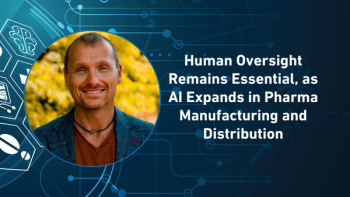
340B program represents 6% or more of US pharma market
Purchases totaled $19.3 billion, up 19% over 2016, say Drug Channels' Adam Fein
The 340B program, which dates back to 1992, was set up to enable certain hospitals and healthcare providers to purchase drugs at a discount, while obtaining the nominal full value of the drug from HHS. the margin betweeen the two is nominally supposed to support care for the indigent, but is not required to be spent that way. Through a variety of industry and policy changes, the program has now grown into something of a health system monster, with thousands of healthcare sites designated as eligible "covered entities," and with the volume of purchases made through the program growing by double-digit rates.
Now, Adam Fein, president of Pembroke Consulting and industry blogger at DrugChannels.net,
Health provider advocates have long claimed that the revenues obtained from aggressive 340B discounting enable them to cover "uncompensated care" for the poor or needy. But Fein also reports that the volume of uncompensated care has dropped from $45.9 billion in 2012 to $38.3 billion in 2016 (the latest year for which data are available). ("Uncompensated care" covers a lot of things besides drug costs; the point here is one trend is going up while the other is going down.)
It could be argued that pharma companies losing out on some of their reimbursement is a "so what?" situation, but the 340B program causes a variety of dislocations in healthcare funding. In particular, an eligible cancer center can take advantage of the discount, while many community oncologists cannot; this is one of the reasons that nonaffiliated oncologists are becoming rarer and rarer in the US, even though the cost of care at community oncology offices is generally less expensive than at health systems. There has been an ongoing debate on whether the 340B should be changed, but so far, no direct action has been taken.
Newsletter
Stay ahead in the life sciences industry with Pharmaceutical Commerce, the latest news, trends, and strategies in drug distribution, commercialization, and market access.



